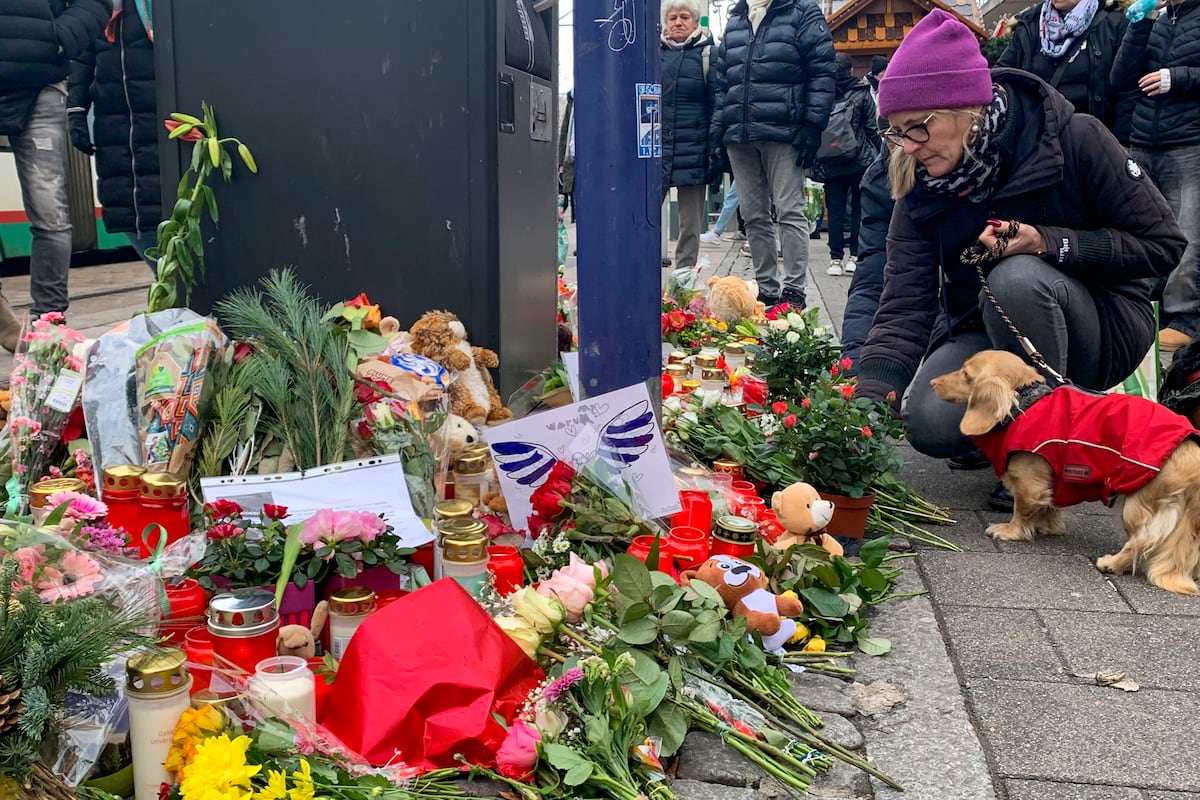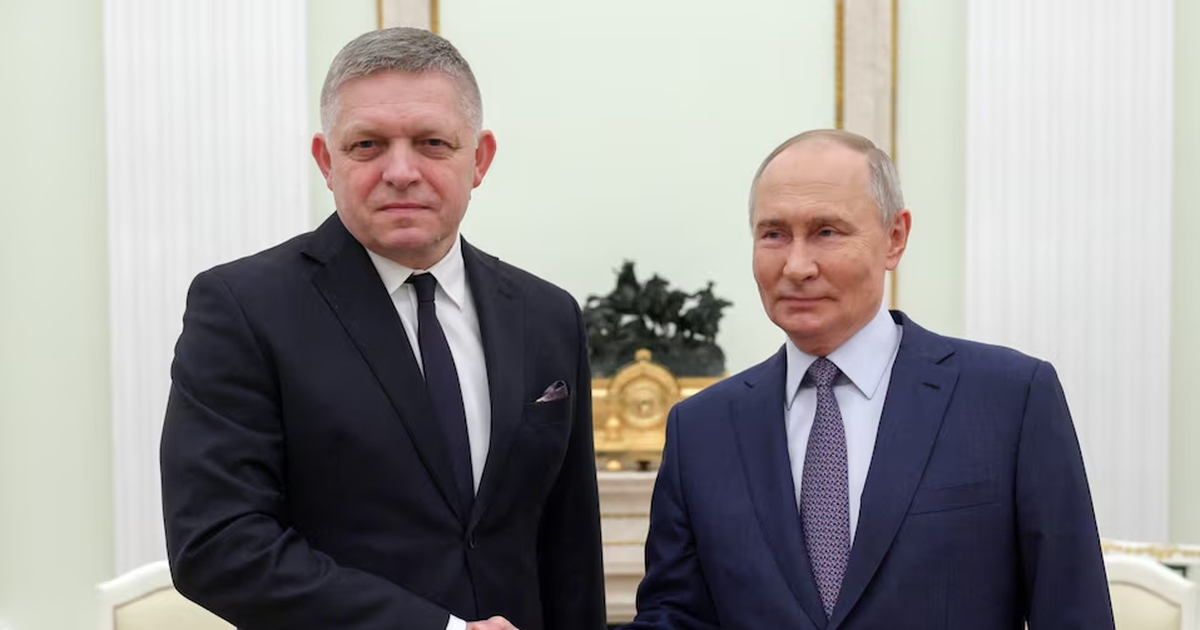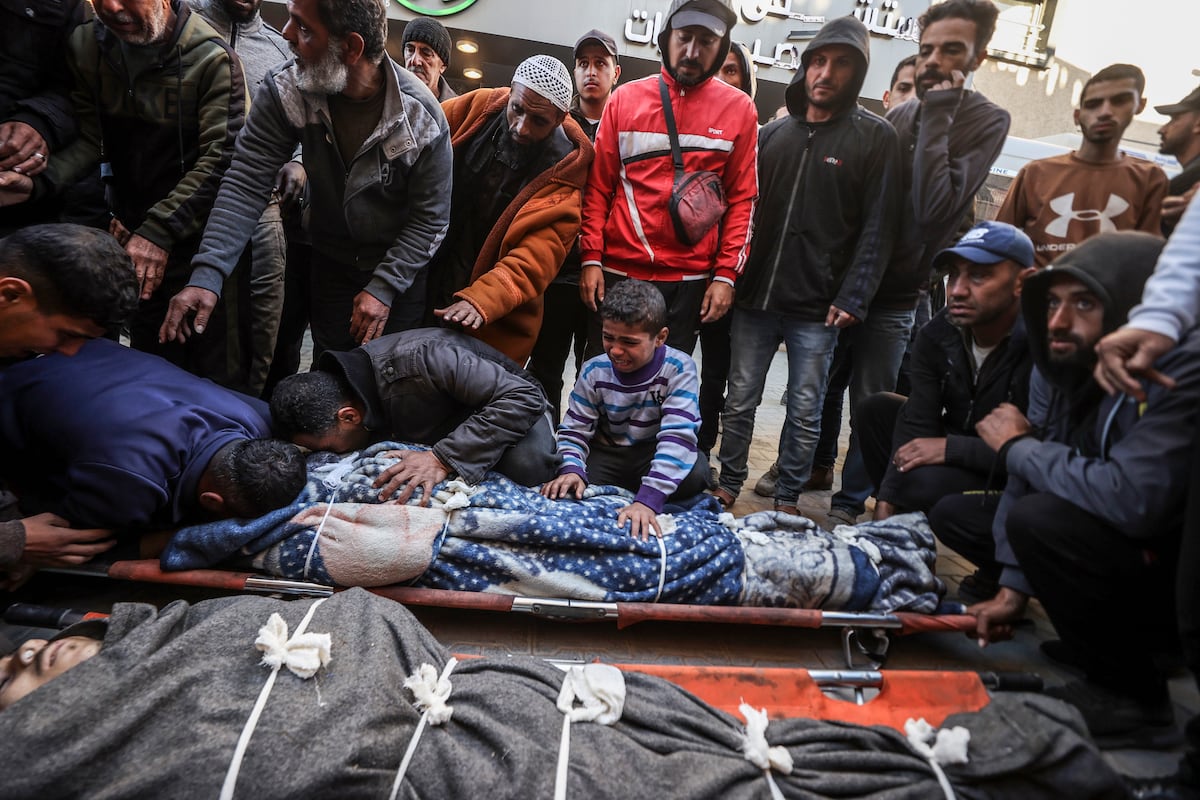The large-scale invasion by Kremlin troops in February 2022 pushed millions of Ukrainian citizens to flee the country. Between six and ten million still live abroad and the Government wants them to return. They need them: the country had a deep demographic hole that the war has only worsened. With an eye toward reconstruction, a new department, dubbed the Ministry of National Unity, faces the difficult task of bringing back its citizens.
The president, Volodymyr Zelensky, placed the ministry’s tasks – working with the large Ukrainian community abroad – as one of the priorities of the resilience plan that he presented to Parliament on November 19. The new portfolio, a reconversion of the Ministry of Reintegration of the temporarily occupied territories, was officially created on December 3.
Olga Pischulina, sociologist at the Razumkov analysis center, summarizes what has emerged about the Government’s plans: “There are many people living abroad and the new ministry will try to stimulate their return. As? Nobody knows; There are still no mechanisms for those returns,” he says in a cafeteria near his office. The Ukrainian press has asked the same question to different departments of the Executive and the Head of State, without success.
For starters, it’s unknown precisely how many people the new department will target. The minister, Oleksi Chernishov, spoke in early December before Parliament of “eight, nine, ten million people.” As an approximation, of those who fled in the first months of the war, almost 6.7 million Ukrainians continue to live abroad, according to UNHCR, the UN refugee agency. Volodímir Landa, an economist at the Center for Economic Strategy, an economic analysis institute that has participated in the development of a strategy for demographic development with the Ministry of Social Policy, lowers the figure to five million. The Government also points out that there are between three and four million economic emigrants who were already residing abroad before the conflict.
Whether people return will depend on certain conditions being met, according to Pischulina. Some are impossible to fulfill while bombs continue to fall daily throughout the country. The first is obvious: security. But we also need a stable situation with economic and social opportunities. Those who live abroad also expect an educational system and quality healthcare. Olena Babakova, a Ukrainian journalist and researcher specializing in migration at the Vistula University in Warsaw, adds the high costs of rent, the breakup of couples after a period of separation, and feeling like a stranger compared to those who stayed and have lived. the war, as impediments to embarking on the return.
kyiv is studying all kinds of solutions. He is in favor of EU Member States cutting aid to refugees, as a measure of pressure, and of men of military age not having access to consular services. At the same time, it seeks not to lose the link with those who left with legislative reforms. Last week, Parliament approved in first reading to recognize dual nationality (Ukraine and another country), until now prohibited.
Oleksandra Balyasna, 39, fled with her daughter to the Netherlands, where her sister had been living for 20 years. She does not feel “assimilated” into Dutch culture, but she has no intention of returning, at least for now. He continues to direct, remotely, a Ukrainian NGO that develops care programs for premature children and on weekends he collaborates with a foundation to meet the needs of Ukrainian refugees in their host country: “Of the people I know, no one wants to return.” now”. There are no figures either, but Balyasna’s situation, teleworking from abroad, is not an isolated case.
Balyasna demands three requirements that the country does not meet. Security, which is not only the end of the war, but guarantees that it will not be repeated. Access to educational opportunities for her 12-year-old daughter, and to a health system that guarantees her the medication she needs. It is difficult for them to be so far away, to feel that those who have stayed in the country may look at them with suspicion for having left, as Babakova pointed out. “Sometimes I feel like I’m not where I would like to be, but we have light, we can sleep every night,” he says by phone from The Hague. A friend of hers with three children returned to kyiv to join her husband. He deeply regrets it and tells her not to come back.
Willingness to return
Many return for a short period of time, such as the Christmas holidays. This Monday, 150,000 people crossed the country’s borders, but they did so in both directions, according to the Border Guard. Around 1.2 million refugees have returned to their country of origin for at least a period of three months, according to UNHCR. A study by the same organization published in November indicated that 61% of refugees still hope to return when the situation improves.
Babakova, the Warsaw-based specialist, points out differences in the intention to return between those who fled the war and those who left earlier for economic reasons. According to the central bank of Poland, 39% of refugees in that country want to stay longer or forever, while in the second group, the percentage rises to 61%. Among the reasons for returning are the impossibility of finding a job according to their abilities where they are residing, the lack of a feeling of belonging and having elderly parents and other relatives in Ukraine.
In an email exchange, Babakova suggests that the Government could look at some measures used in other countries to encourage returns, such as income tax exemption in the first three years, mortgage aid, educational scholarships, etc. “However, these measures will have minimal effect. “In fact, it is more productive to focus on immigration policy, on how to attract economic migrants from third countries.”
Ukraine needs between 3.1 and 4.5 million workers by 2032 if it wants to achieve a level of annual economic growth of 7%, according to data from the Ministry of Economy collected in a study by Razumkov. The post-war recovery will need 411 billion dollars (391 billion euros), 2.5 times more than the country’s GDP before the war. Added to the departure of millions of Ukrainians in different waves of migration is the country’s demographic deficit.
“The problem is really immense. Ukraine is the world leader in population decline,” explains Pischulina. The last census (2001) recorded 49 million inhabitants, which in 2021 was reduced to 41, according to Government calculations. Now, the population has fallen to 31 million, removing emigrants, refugees and the five million people living in some area occupied by Russia. Added to this is the negative population balance, with more deaths than births. As an example, this year, in the first 10 months, 250,970 people died for 87,500 births, a ratio of three to one.
The fertility rate fell after the country’s independence in 1991, to 1.8 children per woman. This phenomenon caused a demographic hole in the population pyramid among those under 35 years of age, which is now being repeated in a more profound way, when this cohort has reached fertile age. In 2023 the birth rate was 0.7, and by 2024 it is expected to be 0.6.
Ukraine is in a hurry to get its citizens back. The passage of time complicates returns. The Government, in the demographic strategy approved in September, recognizes that between 1.3 and 3.3 million people may not return. “The longer the armed aggression lasts, the lower the proportion of those forced to leave Ukraine who are likely to return,” the document acknowledges. Balyasna corroborates this from The Hague: “Every year we live abroad, the less we will return.”






